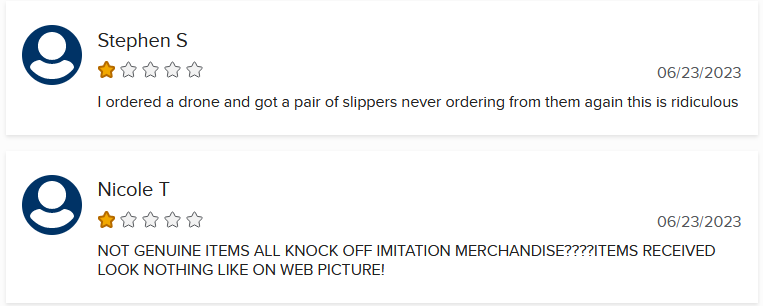Temu: Shopping miracle or cybersecurity risk?
by Jon Lober | NOC Technology
What is Temu?
Temu is an online shopping website that offers an enormous variety of goods for extremely low prices. Imagine a dollar store version of Amazon. Ever since its catchy super-bowl ad that told us that we could all “shop like billionaires,” there has been a lot of buzz around Temu.com—and an equal amount of controversy.

The website’s popularity in the United States has skyrocketed in 2023 from near obscurity to one of the top 100 most popular websites in the US.
Its growth is likely due to several factors: extremely cheap pricing, willingness to sell at a loss to gain customers, and a highly-effective social media marketing campaign. Offers of free or nearly free items continue to incentivize potential customers to spread the word. The pitch is no scam. Customers that refer friends do truly receive free products.
As their orange bags pile up on the porches of your neighborhood, the questions about the company behind them are also piling up. Is Temu a legitimate company? Is it out to steal my information? Will I receive what I bought?
Considering the wide variety of information that is currently available about the company, we wanted to take a quick look at four sources of controversy that are currently dominating the conversation about Temu: ethical and legal considerations, pricing, validity, and cybersecurity.
How does Temu keep its prices so low?
Undoubtedly its largest appeal, Temu’s pricing structure aims to undermine any potential competitors. Although most of its offering are off-label, generic products, some manufacturers are selling their name-brand wares directly through the site—most notably Lenovo.

From all accounts, most of the products are cheap in more ways than one. “You get what you pay for” is a common refrain when you begin to look through user reviews. However, most users do not seem to need their products to last for a lifetime and are quite content with their economical purchases.
Cheap products from China are hardly a new phenomenon in the United States. However, the offer of free (or nearly free) products in exchange for new user sign-ups and social media promotion have driven the popularity of Temu through the roof.
PPD Holdings (the company behind Temu) seems willing to take a beating up-front in order to generate a customer base. Following in the footsteps of other retail giants, Temu is likely intentionally selling its products at a loss in order to attract and retain new customers. For now, their loss is your gain, though it comes with some compromises (keep reading).
Though the pricing structure is certainly a bit misleading to consumers (and prone to spawn monopolies), predatory pricing is hardly a novel or unusual market condition. Many of the major players in the digital age of commerce have allegedly created some space for themselves through the same maneuver.
However, it seems that Temu might also be able to sell at bargain prices through some far less savory means, tax loopholes and abuse of labor.
What are the ethical and legal concerns surrounding purchases on Temu?
As the company comes under increasing scrutiny in the United States, it appears that Temu is cutting itself a deal through a combination of tax code loopholes and outright violations of human rights. A June 2023 Congressional report addresses two serious concerns that consumers should keep in mind.
Through an old trade rule, known as de minimis, Temu is able to bypass most customs oversight and all tax obligations for shipments valued less than $800. Since these imports represents the overwhelming majority of Temu’s business in the US (and more than 30% of all de minimis shipments), lawmakers and market competitors are understandably frustrated. Consumers should recognize that their products enter the country under these circumstances.
Far more concerning than tax loopholes are the accusations of human rights violations behind some of the products available on Temu. Chairman Gallagher from the House Select Committee on the Chinese Communist Party does not mince his words when referencing the report: “These results are shocking: Temu is doing next to nothing to keep its supply chains free from slave labor.”
These concerns are centered around products that originate from the Xinjiang Autonomous Region. The US government has banned the import of products from the region since 2022 in order to decrease demand on the region of China accused of abusing the Uyghur people group. According to the Congressional report, Temu is doing nothing to ensure that its supply chain is clear of products produced under forced or slave labor conditions.
Is Temu a legitimate online shopping website?
To directly answer the ubiquitous internet question “Is Temu legit?” Yes. It is a website where you will (probably) receive what you pay for, and for a pretty low price. It is not a pure scam. However, that “yes” above comes attached to a pretty significant “buyer beware” sign.
At the time of writing, Temu held a 2.5/5 with the Better Business Bureau (BBB)—a lousy C-. Recent reviews BBB do not paint a rosy picture. The term “you get what you pay for” appears several times. Many customers complain about knockoffs and stolen intellectual property. Others mention that they did not get what they paid for. However, there is also a smattering of happy customers proclaiming what a great deal they got.

Temu’s store does offer a huge catalog of legitimate products that could very well arrive on time. Just remain aware that many other packages are cheap knockoffs that could take weeks to arrive – or never arrive at all. Since most packages originate in China, buyers should expect weeks—not days—for their order to arrive.
Does Temu represent a cybersecurity risk to users?
As a managed service provider, this is our biggest concern with Temu. To date, no cyber experts have produced proof that Temu is exploiting your personal data through malware. However you can be sure that they are harvesting your personal data in the same way that every other online shopping platform does.
The internet has been on fire since April 2023 with concerns about Temu since its sister company, Pinduoduo, was found to be using aggressive malware to mine data from their users. The discovery was unprecedented for an app of Pinduoduo’s status. As one of China’s most popular shopping apps, it was used by more than 750 million clients per month. The app was able to bypass Android security to monitor activities on other apps, read private messages, check notifications, and change settings.
Since that time, Pinduoduo has been removed by Google from the app store. At this time, Temu remains available through major app stores, and no substantiated allegations have been confirmed by the cybersecurity community.
Should you use Temu?
With Temu, you might land a great deal, or you might unwrap a disappointing knockoff—or worse. The website is currently mired in controversy. If you are concerned about human rights violations, security concerns, intellectual property rights, or receiving what you ordered, you might want to steer clear of the website.
Should you still decide to chase that deal, avoid downloading the app. Make your Temu purchase through the browser on a device running an active VPN and use PayPal as your payment method. Though this cannot shield you against every possible cybersecurity concern, it can limit your exposure.




